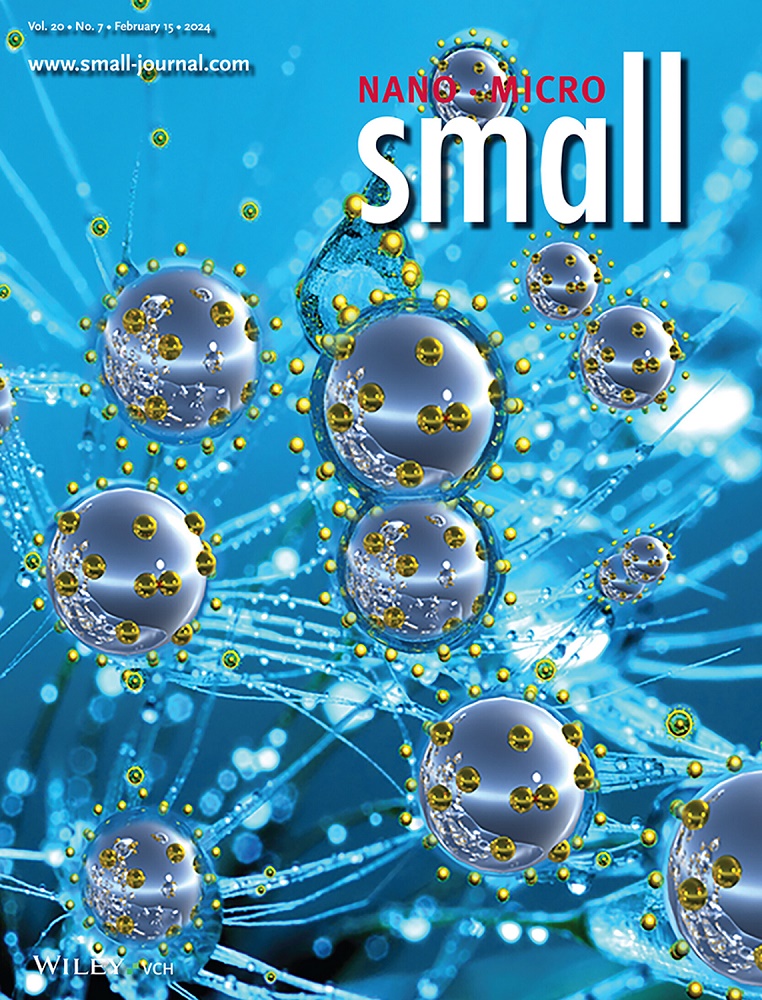Alcohol-Assisted Salt-Spreading Synthesis of Single-Atom Zirconium Catalysts on Ultrathin 2D MWW Zeolite for Enhanced Biomass Valorization.
IF 13
2区 材料科学
Q1 CHEMISTRY, MULTIDISCIPLINARY
引用次数: 0
Abstract
The precise synthesis of single-atom Zr catalysts on ultrathin 2D MWW zeolites remains challenging due to inevitable Zr clustering, expensive precursors, and complex post-treatments. Here, an alcohol-assisted salt-spreading deposition (ASD) strategy is reported to immobilize atomically dispersed Zr sites on pre-synthesized single-layer MWW nanosheets (SL-MWW). Derive benefit from the abundant external silanol groups (SiOHext) on the external surface of ultrathin 2D-MWW, tetracoordinated Zr─O4 configurations are grafted via a facile ASD process without toxic organic solvents. Characterizations including HAADF-STEM and XAS confirm the atomic dispersion and unique tetracoordinated structure of the Zr site. The resulting Zr-SL(ASD) catalyst exhibits exceptional Lewis acidity and accessibility, achieving superior selectivity and high conversion in Meerwein-Ponndorf-Verley reduction and etherification (MPV-ETH) cascade reaction of α, β-unsaturated carbonyl compounds and transesterification to valorized biomass under mild conditions. Comparative studies reveal three possible interaction pathways between external silanol groups and Zr species that govern atomic dispersion. The ASD approach successfully eliminates expensive and toxic organometallic precursors or energy-intensive treatments, offering a green and scalable route to prepare single-atom Zr-MWW catalysts. This work provides new insights into designing efficient and sustainable zeolite-based catalysts for biomass valorization.醇助盐扩散在超薄二维MWW沸石上合成单原子锆催化剂促进生物质增值。
由于不可避免的Zr聚集、昂贵的前驱体和复杂的后处理,在超薄2D MWW沸石上精确合成单原子Zr催化剂仍然具有挑战性。本文报道了一种醇辅助盐扩散沉积(ASD)策略,将原子分散的Zr位点固定在预合成的单层MWW纳米片(SL-MWW)上。利用超薄2D-MWW外表面丰富的外部硅醇基团(SiOHext),通过简单的ASD工艺接枝了四配位的Zr─O4构型,无需有毒有机溶剂。包括HAADF-STEM和XAS在内的表征证实了Zr位点的原子分散和独特的四配位结构。所制得的Zr-SL(ASD)催化剂具有优异的刘易斯酸度和接近性,在温和条件下α、β-不饱和羰基化合物的Meerwein-Ponndorf-Verley还原醚化(MPV-ETH)级联反应和酯交换反应中具有优异的选择性和高转化率。比较研究揭示了三种可能的相互作用途径之间的外部硅烷醇基团和控制原子分散的Zr种。ASD方法成功地消除了昂贵且有毒的有机金属前体或能源密集型处理,为制备单原子Zr-MWW催化剂提供了一种绿色且可扩展的途径。这项工作为设计高效和可持续的沸石基生物质增值催化剂提供了新的见解。
本文章由计算机程序翻译,如有差异,请以英文原文为准。
求助全文
约1分钟内获得全文
求助全文
来源期刊

Small
工程技术-材料科学:综合
CiteScore
17.70
自引率
3.80%
发文量
1830
审稿时长
2.1 months
期刊介绍:
Small serves as an exceptional platform for both experimental and theoretical studies in fundamental and applied interdisciplinary research at the nano- and microscale. The journal offers a compelling mix of peer-reviewed Research Articles, Reviews, Perspectives, and Comments.
With a remarkable 2022 Journal Impact Factor of 13.3 (Journal Citation Reports from Clarivate Analytics, 2023), Small remains among the top multidisciplinary journals, covering a wide range of topics at the interface of materials science, chemistry, physics, engineering, medicine, and biology.
Small's readership includes biochemists, biologists, biomedical scientists, chemists, engineers, information technologists, materials scientists, physicists, and theoreticians alike.
 求助内容:
求助内容: 应助结果提醒方式:
应助结果提醒方式:


